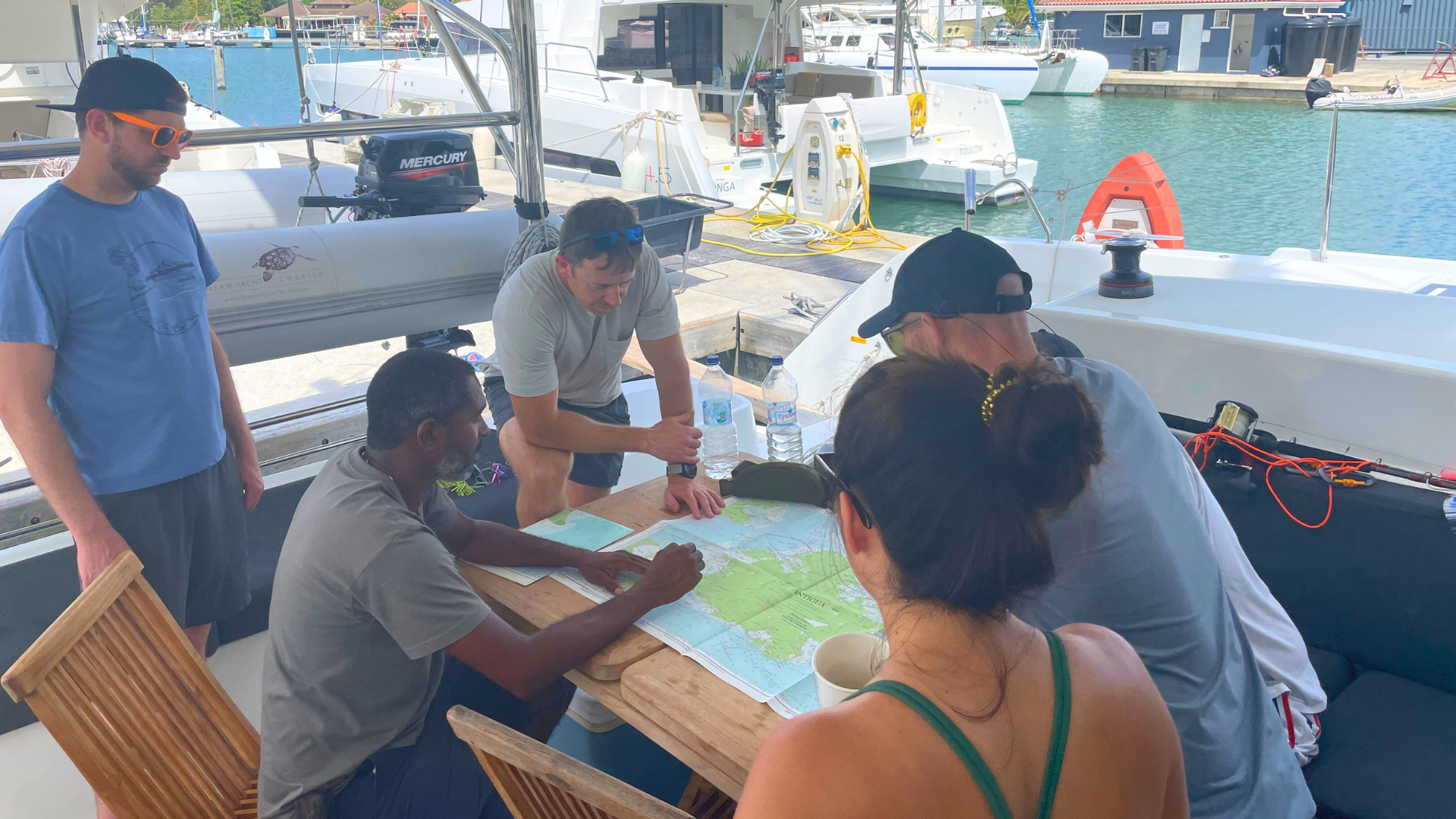

Matt Weidert
Yacht Charter Skipper's Brief
As I gear up for another voyage to the British Virgin Islands, I always spend some time re-visiting my yacht charter skipper brief.
Before each trip, it's important to have a sober conversation with the crew about what to expect out there on the water. Whether you're a seasoned sailor or a first-timer, knowing how to react can be the difference between a memorable trip and a disastrous one.
Below is the brief I give my crew. We usually do this at the dock with some coffee after our sleepaboard. Hopefully, this will also help better prepare you for the unexpected on your next yacht charter trip.
Yacht charter safety topics
After experiencing a fire aboard a recent charter in Antigua, safety matters have taken on a new importance for me and the crew.
Fire extinguishers
- Where are they, and how do I operate them?
- There should be several in the salon and one in each cabin
- Teach the P.A.S.S. technique to operate the fire extinguishers
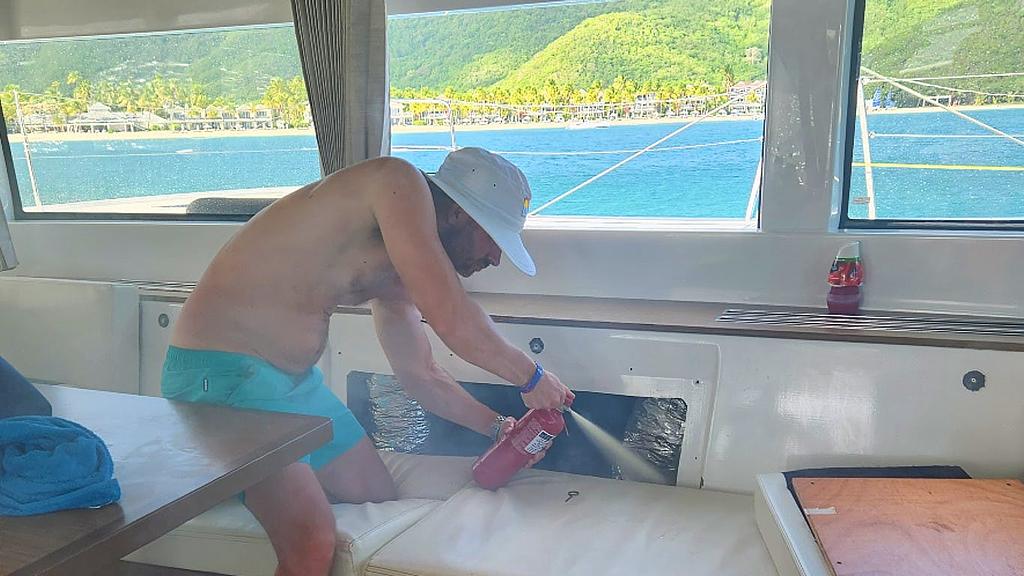
Evacuation routes
- If a fire happens at night and the primary exits are blocked by smoke, use the overhead hatches
- Another option on catamarans is escape hatches located behind the ladders in each hull
- Make sure you know where old and young crew members are located and have a plan to assist them in evacuating
- Do a head count once you evacuate
Life jackets (PFDs)
- Know where they are and make sure you have the correct count
- Make sure to request kid PFDs if necessary
Radio and distress call procedures
- Everyone should know the basic procedures and how to make a call
- Channel 16 and also cell phone with emergency numbers
- Explain squelch - turn it up before making a call
- I bring a laminated copy of this VHF Guide from SAIL Magazine and keep it by the radio
- For non-distress calls, hail on 16 and then switch channels. Be brief
Man overboard procedures
- Whoever sees the man overboard alerts the crew and points at them - don't take your eyes off
- Throw the life ring or anything that floats into the water - we usually have a lifejacket tied to the back of the boat as well that should go in
- If we are sailing, no fancy maneuvers - someone will help me get the sails down as fast as possible, and we'll motor for the pickup
- Someone is designated in advance to make a man overboard MAYDAY call
- Don't fall off the boat! We sometimes close the 'head' on the back of the boat during spirited conditions. We also keep the volume on the speakers to a reasonable level when underway
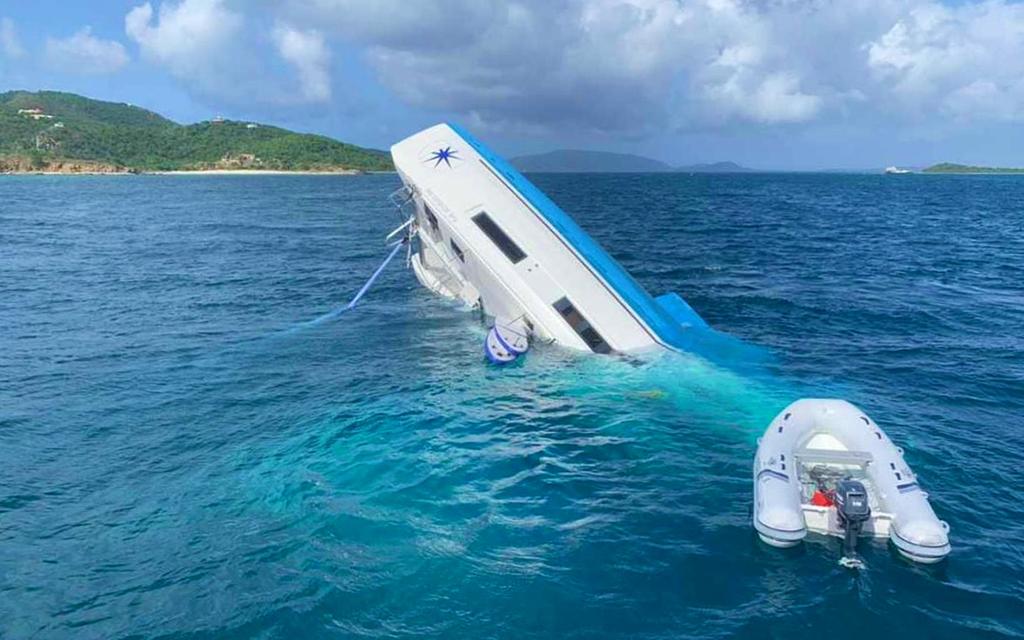
Sinking procedures
- If we are taking on water, I will grab someone to go below and find it. Take towels and plugs with you
- Know the location of the through hulls - most likely place for a leak unless you've hit something
- Someone else is designated to make a distress call on 16
- Another person to the manual bilge
- Depending on severity of the leak, other crew members will prepare to abandon ship - water, handheld radio, life jackets, go-bag, and get the dinghy down if conditions allow
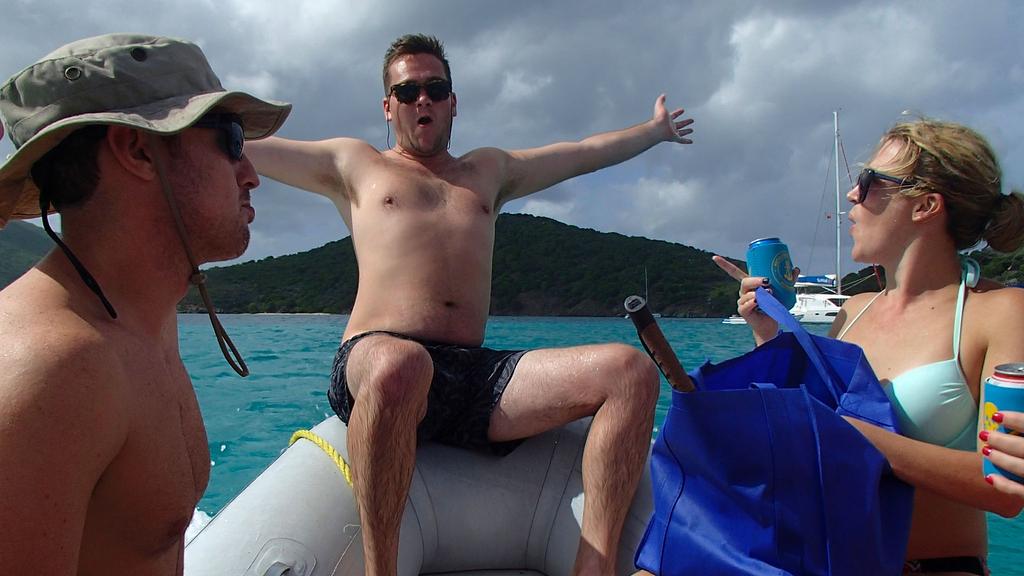
Other safety topics
- Pay close attention to redlined areas and other local knowledge from the base staff
- Know the location of other safety gear - through hull plugs, flares, speaking trumpet, etc. Do a complete inventory before leaving the dock
- Everyone is a lookout - don't assume that the helmsman sees the fishing buoy, other boat, etc.
- One hand for you and one for the boat
- Prop safety - no one goes on the front of the dinghy
- Swim with a buddy, three is better
- Always use the dinghy kill switch - learn about a tragedy in BVI as a sobering reminder
- Describe fire coral and warn of consequences - better yet, avoid all contact with any coral
- No human fenders when docking
- Have a backup plan for your overnight anchorage or mooring field - it is not uncommon, especially in BVI for mooring fields to fill up early in the high season
Other skipper briefing topics
Routine daily checks
- Bilge
- Engine oil, belts, and impeller
- Generator
- Water and fuel levels
Try to get everyone involved by assigning roles
- Dinghy captain, who can cook (others clean), chief engineer, bartender, etc
Conserving water aboard your sailboat
- Explain what a navy shower is or take showers off back of the boat
- Washing dishes can burn up a lot of water
- This is important even if we have a water maker - they do break!
Underway
- Everyone gets a chance to help sail - team effort
- Explain write-of-way concepts for vessels under sail and power
- Reefing - explain the concept; reef early, especially if a squall is approaching
- Beware of the boom on certain boats - explain accidental jibe
- Don't uncleat a loaded sheet - get several wraps on a winch first
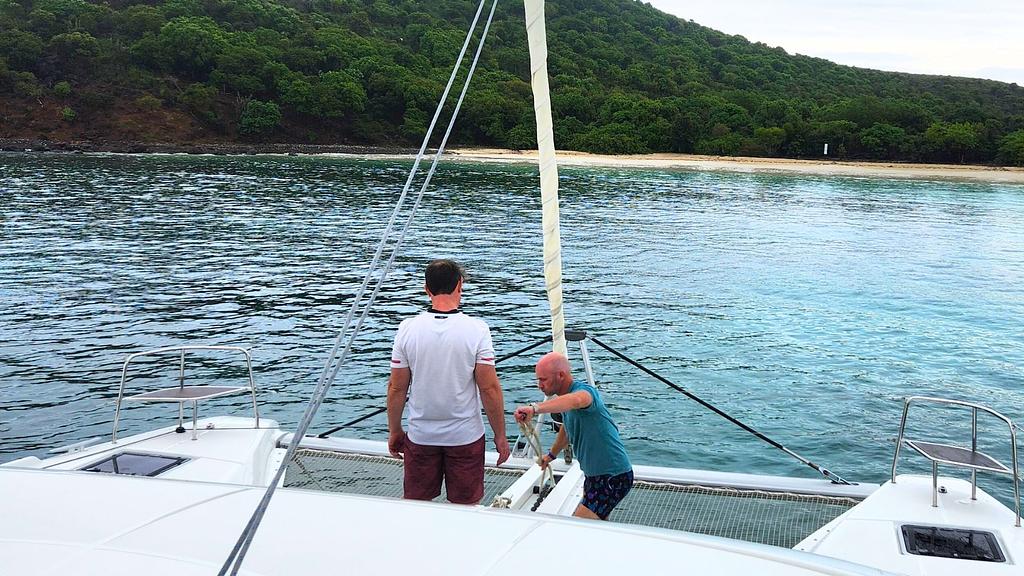
Anchoring
- 5 or 7:1 scope - also depends on the proximity of other boats, how they are anchored, and weather forecast. Backwinding can cause bumper boats
- Anchor captain controls the windlass - the helmsman might have the counter information
- Agree on hand and arm signals
Mooring ball procedures
- Approach from downwind
- One person to port and starboard with the lines and another with the boat hook. You can also involve one more person to point at the ball and direct the helmsman
- Run two lines through pennant eye, lines go on outside of railing
- If you miss, no big deal, swing around and try again
Pre-departure checklist - go through this before you raise the anchor or drop your mooring lines
- Close hatches
- Make sure there is not too much water in heads
- Secure the rest of the boat for sea - anything that looks like it will fall probably will - sink is a good catch-all for bottles
- Check for lines in the water
- Swim ladder up
- Dinghy raised
- Generator and lights off
Miscellaneous
- Seasickness - don't wait until you're sick to take medication
- Don't drink the tank water
- Everyone gets issued a gallon of water per day with their name on it - finish it!
Sailing is as much about respect for the sea as it is about adventure. The yacht charter skipper briefing isn't just about procedures; it's about trust and teamwork. Equipping yourself and your crew with this knowledge is the first step to ensure everyone has the trip of a lifetime.



.jpeg)
